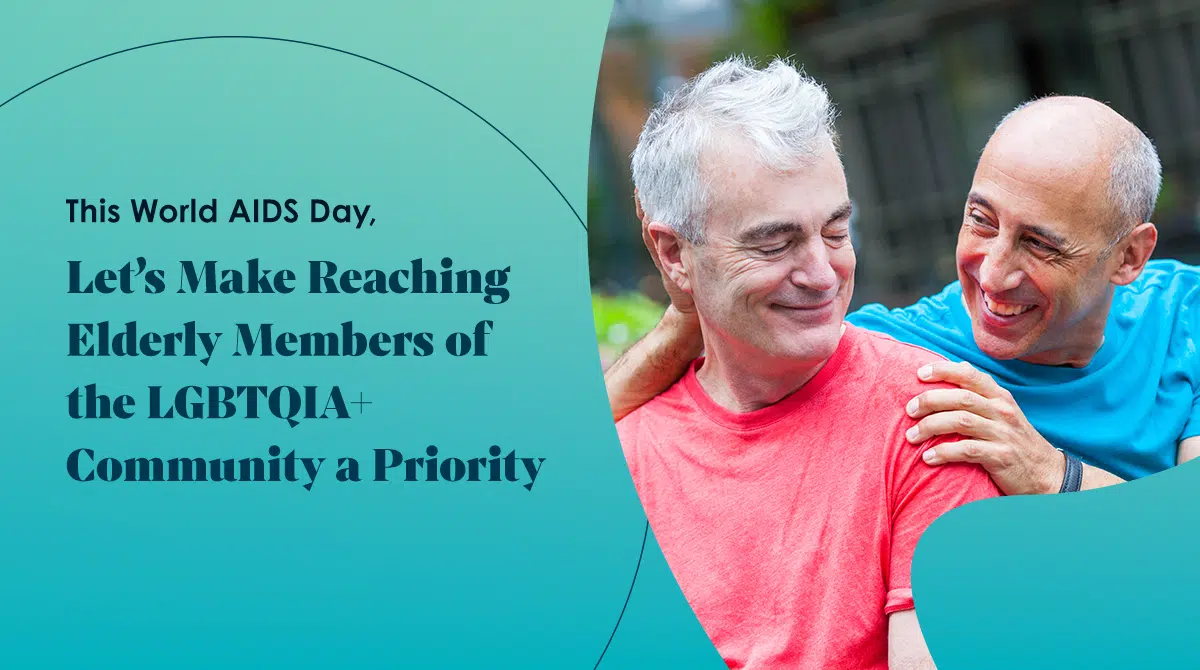
As we approach December 1, the global community recognizes World AIDS Day—a day to remember those affected by HIV/AIDS and to raise awareness about the ongoing challenges in combating the epidemic. In the past 40 years, more than 40 million people have died of HIV or AIDS-related illnesses, and it is estimated that 39 million people around the world live with the virus, according to the World Health Organization. As we close the year, let’s not only reflect on the strides we’ve made but also turn our attention to an often-overlooked segment: elderly members of the LGBTQIA+ community.
World AIDS Day serves as a reminder of the impact of HIV/AIDS on individuals and communities worldwide. While progress has been made in prevention and treatment, it’s crucial to recognize that the LGBTQIA+ community, particularly its elderly members, faces additional challenges. This intersectionality demands a thoughtful approach to health communication that considers the specific needs and barriers of this demographic.
Key Takeaway
– World AIDS Day highlights global HIV/AIDS impact
– LGBTQIA+ elders face unique healthcare challenges
– Inclusive strategies essential for effective communication

Related Case Studies
The issues and barriers that members of this community often face include:
- Stigma and Discrimination: Members of the LGBTQIA+ community, especially the elderly, often face stigma and discrimination in healthcare settings. This can deter them from seeking necessary medical attention, including HIV testing and care.
- Lack of Cultural Competence: Healthcare providers may not be adequately trained in LGBTQIA+ cultural competence, leading to an environment where individuals feel misunderstood or excluded. This lack of understanding can impact the quality of care and hinder open communication between healthcare professionals and their LGBTQIA+ patients.
- Isolation: Our LGBTQIA+ elders are more likely to face social isolation, which can contribute to mental health issues. Addressing mental health concerns is integral to holistic healthcare.
- Limited Access to Inclusive Information: Information about healthcare services and resources tailored to LGBTQIA+ elders may not be readily available. Accessibility to clear, inclusive, and culturally sensitive information is crucial for fostering trust and encouraging engagement with healthcare services.
As public health communicators, there are ways we can break down these barriers and reach this underserved audience to ensure they’re getting the resources they need. These strategies include:
- Tailored Education and Awareness Campaigns Launch targeted education and awareness campaigns that specifically address LGBTQIA+ elders and the providers who treat them. Highlight the importance of regular health check-ups, HIV testing, and mental health support while dispelling myths and stereotypes.
- Inclusive Language: Foster a healthcare environment that uses inclusive language and embraces diverse identities. Training healthcare professionals in LGBTQIA+ cultural competency can go a long way in creating an atmosphere of acceptance.
- Community Engagement: Establish community engagement initiatives that involve LGBTQIA+ elders, such as roundtable discussions about their healthcare needs. This not only empowers them but also provides valuable insights for improving healthcare services.
- Collaboration with Allied+ Organizations: Forge partnerships with LGBTQIA+ organizations and advocacy groups. Collaborative efforts can amplify the reach of critical messages, ensuring they reach the community and are effectively tailored to meet the needs of the people they serve.
Recognizing World AIDS Day is not only about remembering the past but also about addressing the present and future challenges faced by vulnerable populations within the LGBTQIA+ community. By acknowledging the unique issues and barriers that LGBTQIA+ elders encounter in healthcare, public health communicators can play a pivotal role in crafting inclusive, culturally competent messaging. Let’s strive for a future where healthcare is accessible to all, irrespective of age, sexual orientation, or gender identity.
